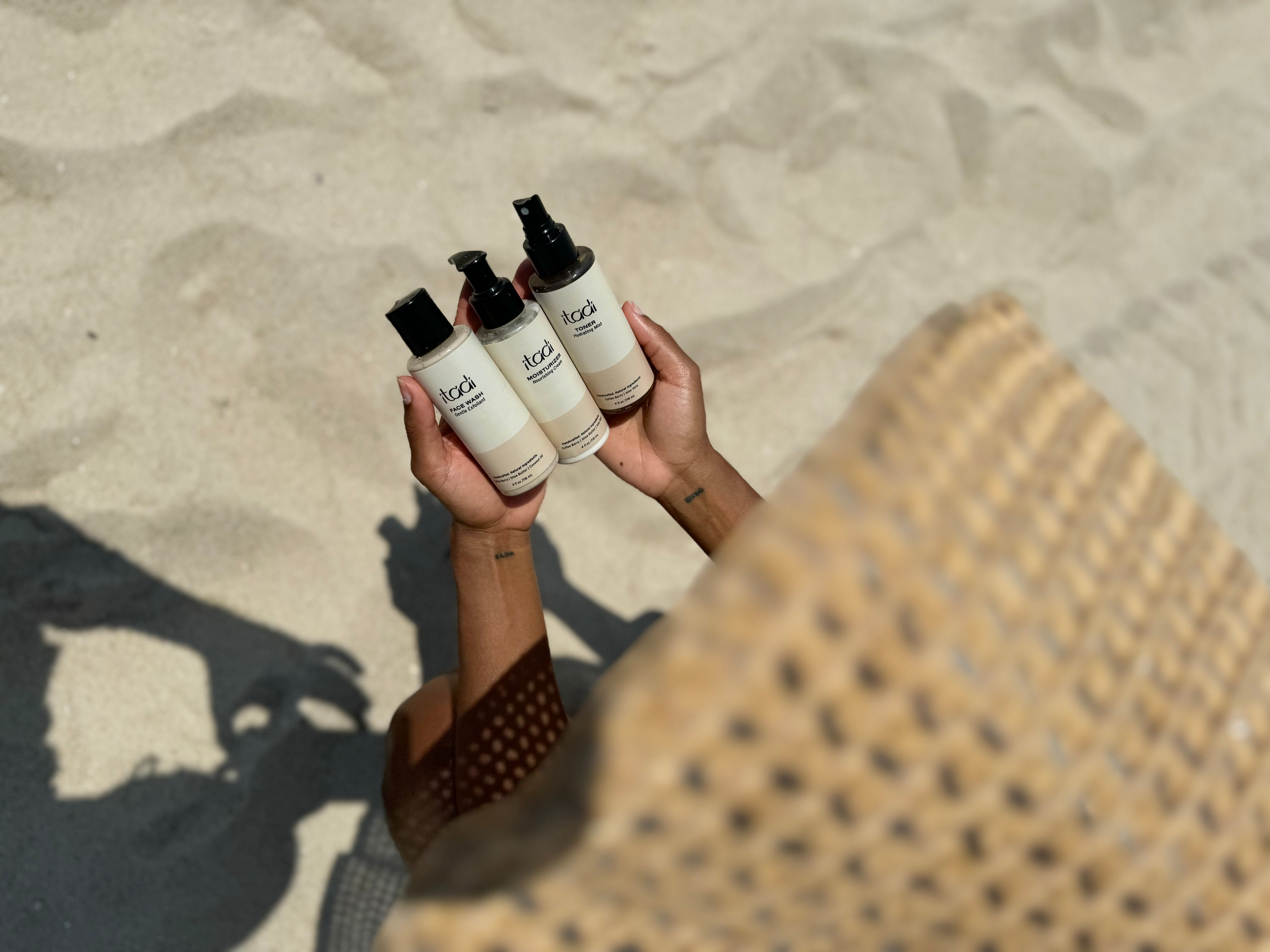Welcome to the Itadi Body blog! We often focus on what we put on our skin, but what about what we put in our bodies? The truth is, your diet and hydration habits play a monumental role in the health and appearance of your skin. Think of your skin as a reflection of your inner health. Today, we're exploring how simple dietary choices can lead to a glowing complexion from the inside out.
The Powerful Connection: Food, Water, and Your Skin
Your skin is your body's largest organ, and it needs a steady supply of nutrients and water to function optimally. What you eat and drink directly impacts:
•Skin Elasticity and Firmness: Nutrients like Vitamin C are crucial for collagen production, keeping skin plump and youthful.
•Hydration Levels: Water is essential for maintaining your skin's suppleness and preventing dryness.
•Protection Against Damage: Antioxidants in food help defend your skin from environmental stressors.
•Inflammation and Breakouts: Certain foods can either promote or reduce inflammation, which impacts conditions like acne.
Foods That Love Your Skin: A Simple Guide
Prioritize whole, unprocessed foods rich in vitamins, minerals, healthy fats, and antioxidants. Here are some skin-loving superstars to include in your diet [1]:
1. Antioxidant-Rich Fruits & Vegetables
Why they help: Antioxidants combat oxidative stress, which is damage caused by environmental factors like pollution and UV rays. They help protect your skin cells and keep them healthy.
Where to find them: Berries (blueberries, strawberries, raspberries), dark leafy greens (spinach, kale), bell peppers, and green tea.
2. Omega-3 Fatty Acids
Why they help: These healthy fats are crucial for maintaining your skin's natural oil barrier, which keeps it hydrated and plump. They also have anti-inflammatory properties that can help calm irritated skin.
Where to find them: Fatty fish (salmon, mackerel), walnuts, chia seeds, and flaxseeds.
3. Vitamin C
Why it helps: Vitamin C is a powerhouse for collagen production, the protein that gives your skin its structure and elasticity. It also helps brighten your complexion and protect against sun damage.
Where to find it: Citrus fruits (oranges, grapefruits), kiwi, strawberries, and bell peppers.
4. Vitamin E
Why it helps: Another potent antioxidant, Vitamin E works to protect your skin from damage and supports overall skin health, often working synergistically with Vitamin C.
Where to find it: Nuts (almonds, hazelnuts), seeds (sunflower seeds), and spinach.
5. Zinc
Why it helps: Zinc plays a role in skin healing and can be particularly helpful for managing acne due to its anti-inflammatory properties and ability to regulate oil production.
Where to find it: Pumpkin seeds, chickpeas, lean meats, and shellfish.
6. Water-Rich Foods & Plain Water
Why they help: Hydration is fundamental! Water keeps your skin cells plump, helps flush out toxins, and maintains your skin's suppleness and glow. Eating foods with high water content also contributes to your daily intake.
Where to find it: Cucumber, watermelon, celery, leafy greens, and, of course, drinking plenty of plain water throughout the day.
Foods to Consider Limiting
While moderation is key, some foods can potentially contribute to skin issues for certain individuals [1]:
•High-Glycemic Foods: Sugary drinks, white bread, pasta, and processed snacks can cause rapid spikes in blood sugar, which may lead to inflammation and potentially exacerbate acne.
•Excessive Dairy: For some, dairy products have been linked to acne breakouts. If you suspect a connection, try reducing your intake.
•Processed Foods: Often high in unhealthy fats, sugar, and artificial additives, these can promote inflammation and negatively impact overall skin health.
•Excessive Alcohol: Can dehydrate your skin, leading to dullness and potentially worsening conditions like rosacea.
The Takeaway
Nourishing your skin from within is just as important as your external skincare routine. By making conscious choices about your diet and ensuring adequate hydration, you can significantly improve your skin's health, radiance, and resilience. Start incorporating more skin-loving foods today, and watch your complexion thank you!



0 comments